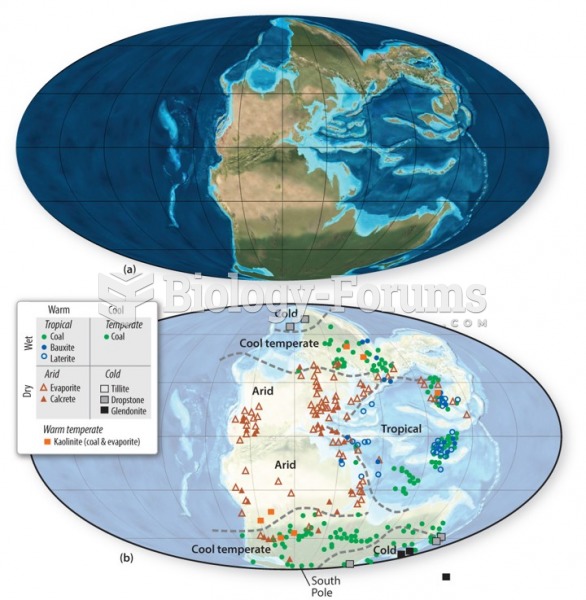|
|
|
Asthma cases in Americans are about 75% higher today than they were in 1980.
Essential fatty acids have been shown to be effective against ulcers, asthma, dental cavities, and skin disorders such as acne.
There are immediate benefits of chiropractic adjustments that are visible via magnetic resonance imaging (MRI). It shows that spinal manipulation therapy is effective in decreasing pain and increasing the gaps between the vertebrae, reducing pressure that leads to pain.
According to the National Institute of Environmental Health Sciences, lung disease is the third leading killer in the United States, responsible for one in seven deaths. It is the leading cause of death among infants under the age of one year.
The term bacteria was devised in the 19th century by German biologist Ferdinand Cohn. He based it on the Greek word "bakterion" meaning a small rod or staff. Cohn is considered to be the father of modern bacteriology.
 A depiction of slaves on a South Carolina plantation, around 1790. Likely of Yoruba descent, they pl
A depiction of slaves on a South Carolina plantation, around 1790. Likely of Yoruba descent, they pl
 Taye Diggs and Idina Menzel are an example of the most common pattern of marriages between African ...
Taye Diggs and Idina Menzel are an example of the most common pattern of marriages between African ...
 Each year, the leaders of the world’s eight most powerful nations meet in a secluded place to make ...
Each year, the leaders of the world’s eight most powerful nations meet in a secluded place to make ...




